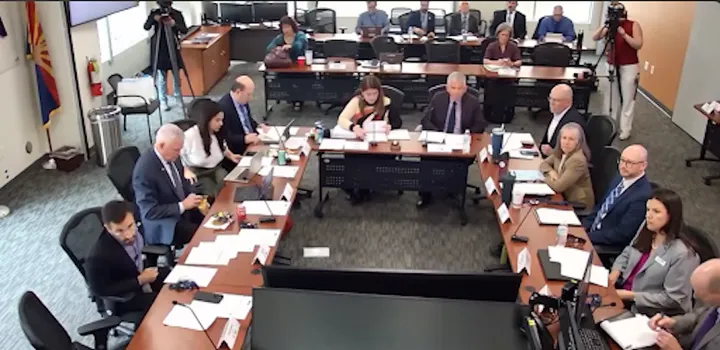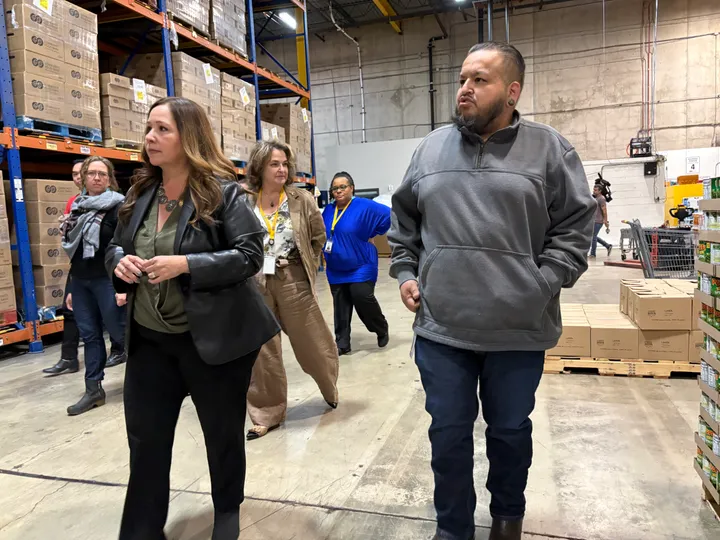Activists criticize Tucson as STAR Village prepares to open
Tucson is set to open its first sanctioned homeless sleeping site, STAR Village, while local activists and mutual aid groups criticize the city for policies they say undermine ongoing grassroots support for unhoused residents.
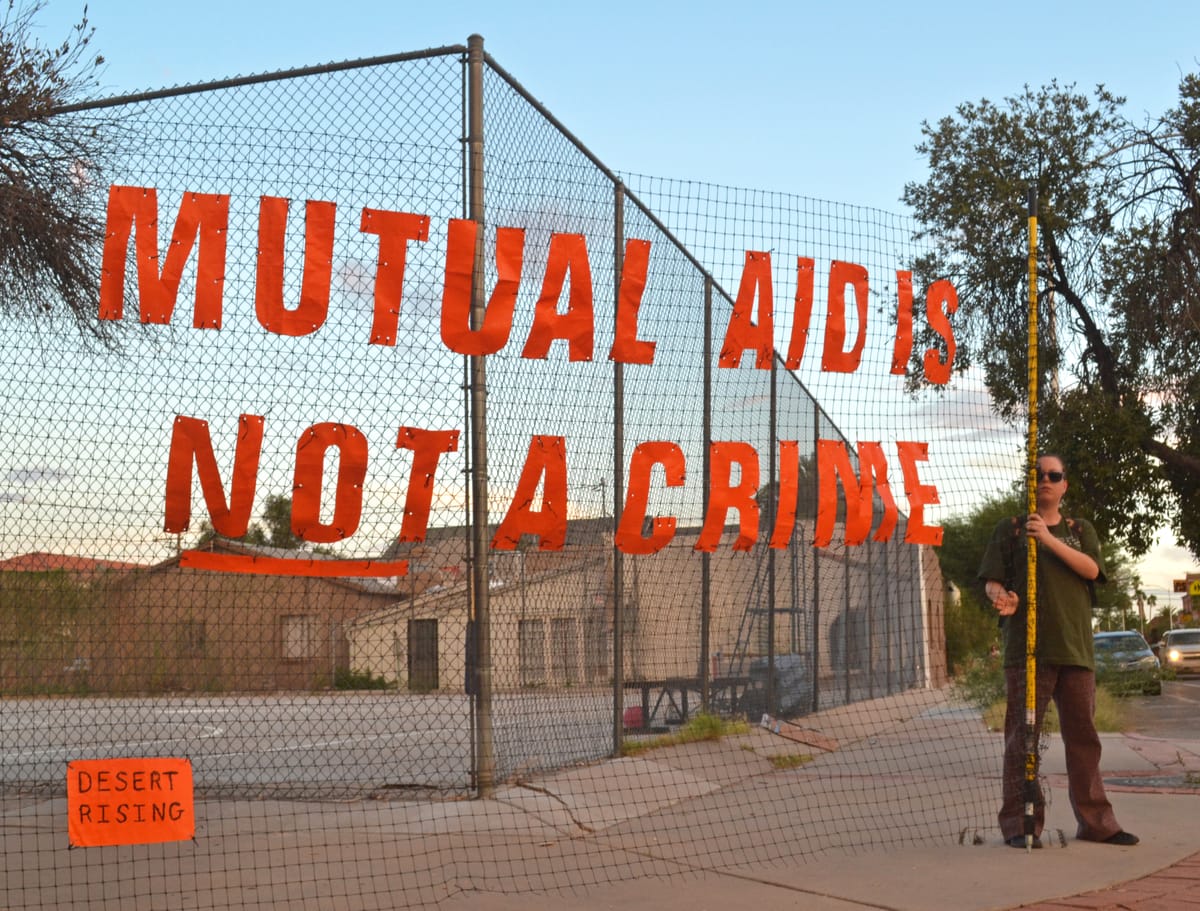
As Tucson prepares to open its first sanctioned sleeping site for unhoused residents, activists say the city is simultaneously undermining grassroots mutual aid groups that have long provided food, water and medical care to the very people the new project aims to help.
STAR Village will open Oct. 15 on city-owned land on East Grant Road as a partnership between the city of Tucson, Primavera Foundation and Old Pueblo Community Services. The site will serve women and nonbinary individuals experiencing homelessness and offer a safe space with services to help residents transition to permanent housing.
The pilot program will include 25 beds and provide tents, bathrooms, shade, water stations and on-site staff. Support will also include wellness checks, and services related to employment, mental health and detox.
No leases or occupancy agreements will be required, according to an Instagram post by Ward 1 Councilmember Lane Santa Cruz. The post also said STAR Village will eventually incorporate affordable housing, manufactured housing and accessory dwelling units.
The idea for the project was brought to City Council in June by community organizer Victoria Devasto, a member of Community on Wheels, a local mutual aid group. Devasto later said on social media that Community on Wheels is not involved with STAR Village but supports the model.
“Star Village and Community On Wheels are not affiliated or partners on this project, however COW is overall in support of the model and implementation as it was written,” the post said. “This is a model that is based on a lot of research and examples from other cities like Hope Village in Las Cruces. There is only a 25 bed capacity because statistically the highest rate of success is within a community of 30 people or less.”
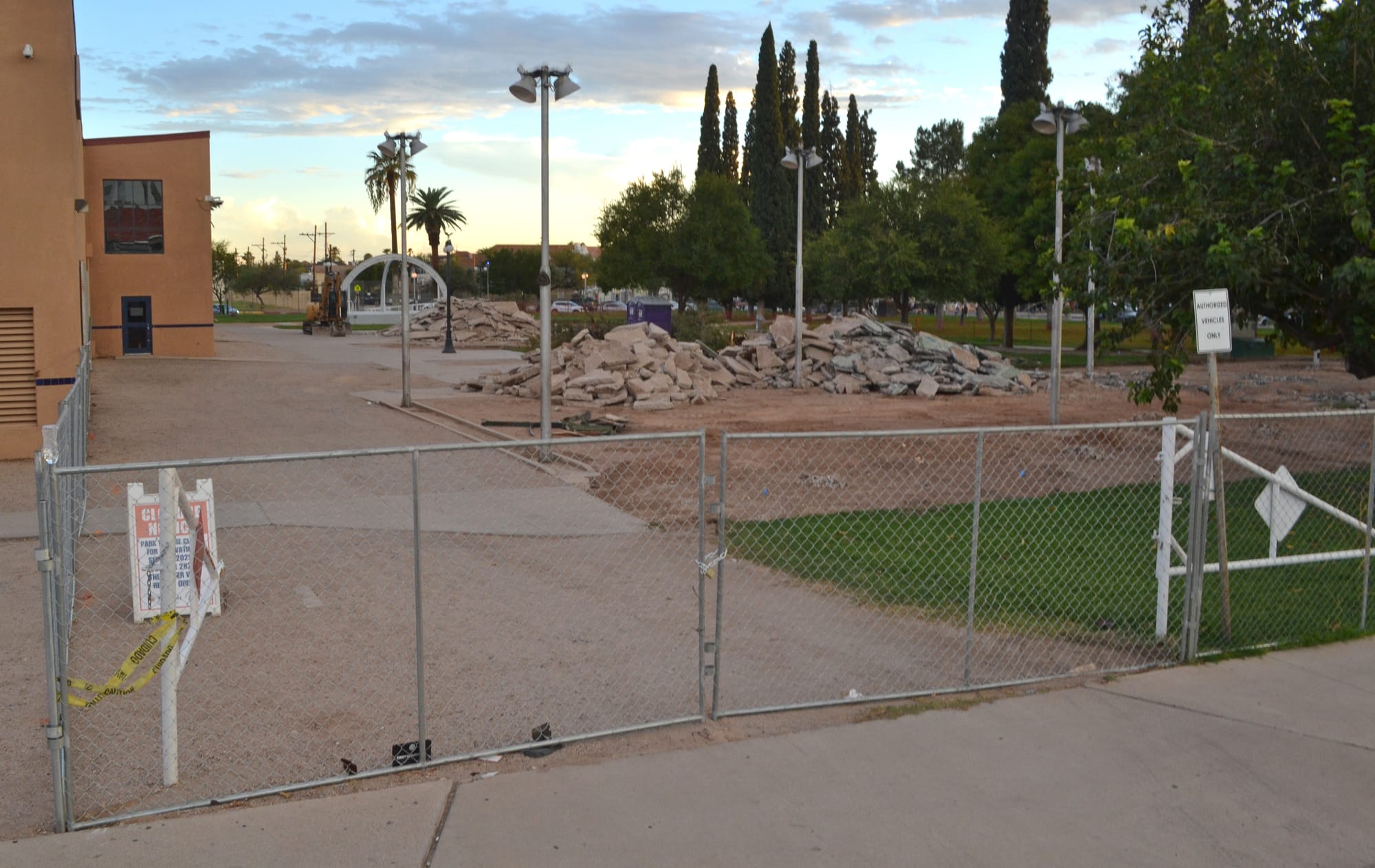
Devasto described STAR Village as a transitional shelter — a nonpermanent living arrangement designed to rotate residents and services to improve their chances of securing stable housing.
“There have been tons of conversations with the city about alternative methods,” Devasto told Tucson Spotlight. “Homelessness has gotten more intense, and there are more issues now.”
Devasto emphasized that STAR Village will not be a “tent city,” as some have speculated.
“There is a lot of misunderstanding because there is not enough information about it," Devasto said. “There is only a 25 person limit, and will not be open to the public."
Devasto said that while she believes STAR Village is a positive step, she's been disappointed in some of the city's other recent actions.
Over the past year, the City Council has passed policies activists call anti-homeless, including:
- Placing rocks under freeway overpasses to dissuade people from sleeping there.
- Voting to ban camping in washes.
- Authorizing police sweeps across the city, opposed by mutual aid groups like Community Care and Community on Wheels, who argue the sweeps cause harm and fail to address root issues.
- Closing Armory Park for a year while Santa Rita Park is also shut down for renovations. Both parks have been central to aid work.
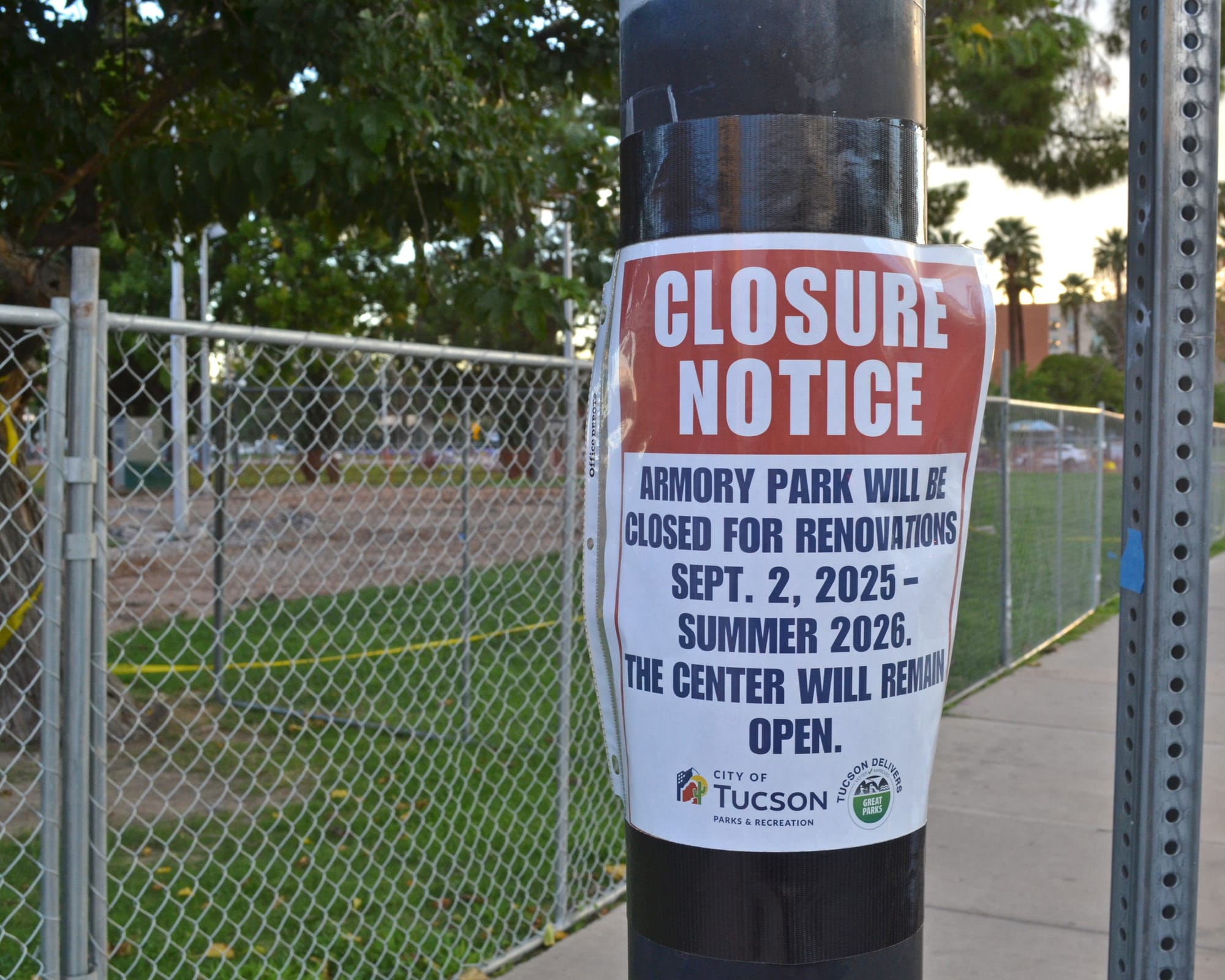
Armory Park was fenced off Sept. 2. A Community Care member told Spotlight the group received less than a week’s notice and had no communication from the city about the closure.
Community Care also reported that Tucson Parks and Recreation recently removed one of its community water stations, part of its “Agua Para el Pueblo” project, which has installed 20 stations around town.
“It was the only station we had set up on city land, but we took a chance because it was a tucked away spot where a stretch of desert park meets a neighborhood. A nearby resident cared for it lovingly, next to her existing little library. The library was not removed, just the water,” the group said in an Instagram post.
The group said it expected resistance to public water stations, citing similar actions in other cities, but was still dismayed.
“Even so, it is extremely disappointing that the city actually did this. That they would spend our resources to take water away from people who need it. It is baffling,” the post said. “The fact that the City would take down a water station is a reminder of why we need mutual aid.”
Last week, a Community Care member told Spotlight that Tucson police threatened the group with citations if they continued to give aid from the Armory Park sidewalk without a permit. The member, who asked to remain anonymous, said the group refused to apply and would continue operating.
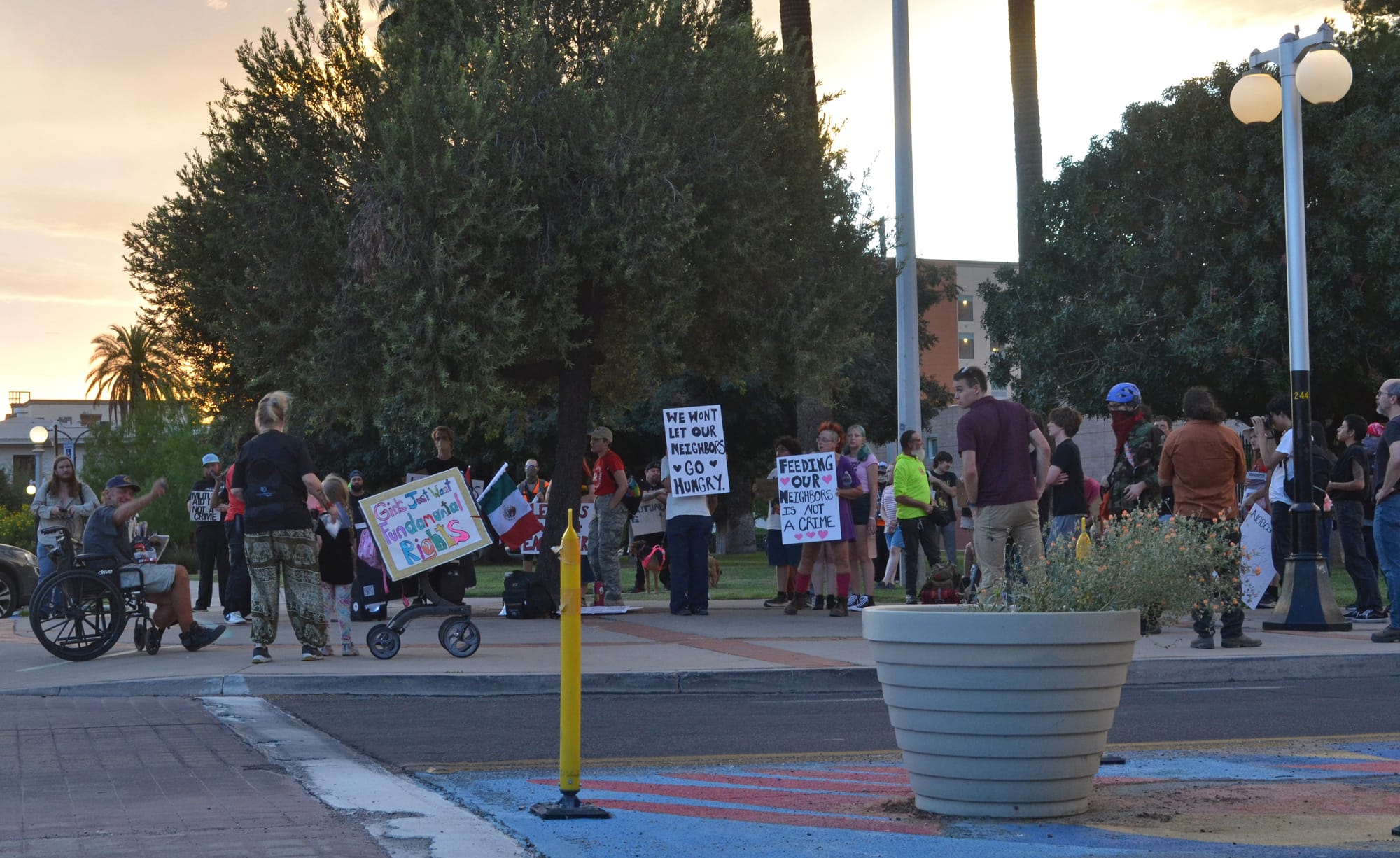
Police did not appear at the park that Wednesday, but protesters gathered across the street in solidarity while Community Care distributed food, water and basic medical care from the sidewalk.
“Where’s the mayor?” protesters chanted. “We feed each other, and take care of each other.”
Community Care member Liz Casey paused her work to speak during the demonstration.
“We’ve been coming here for four years. There are people coming here expecting hygiene, water, blankets in the winter, Gatorade in the summer and there are people dying here every summer and being swept from our parks,” Casey said. “Care and harm reduction is being criminalized. We cannot allow the local government to determine when or where people have access to their basic needs.”
Community Care routinely serves upward of 175 people at each event.
Micheal Parnel, a 71-year-old wheelchair user, told Spotlight the park closure has affected him personally. After his wife’s death cut his income in half, he has come to rely on mutual aid for food, clothing and hygiene.
“Well, it’s affected me a little bit. Me myself, I am able to roll around (and find help somewhere else,) but there are other people here deeply affected,” Parnel said. “These groups help me eat, they help me with hygiene, and clothing. They do a lot for people like me.”
Community Care said it will continue its work and provide updates on the city’s response in the coming weeks.
Colton Allder is a Tucson-based freelancer who reports for Tucson Spotlight. Contact him at callder1995@gmail.com.
Tucson Spotlight is a community-based newsroom that provides paid opportunities for students and rising journalists in Southern Arizona. Please consider supporting our work with a tax-deductible donation.

